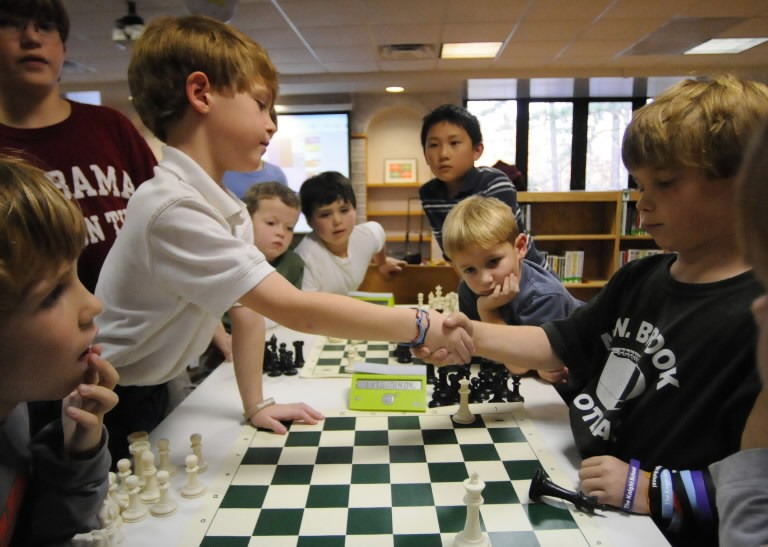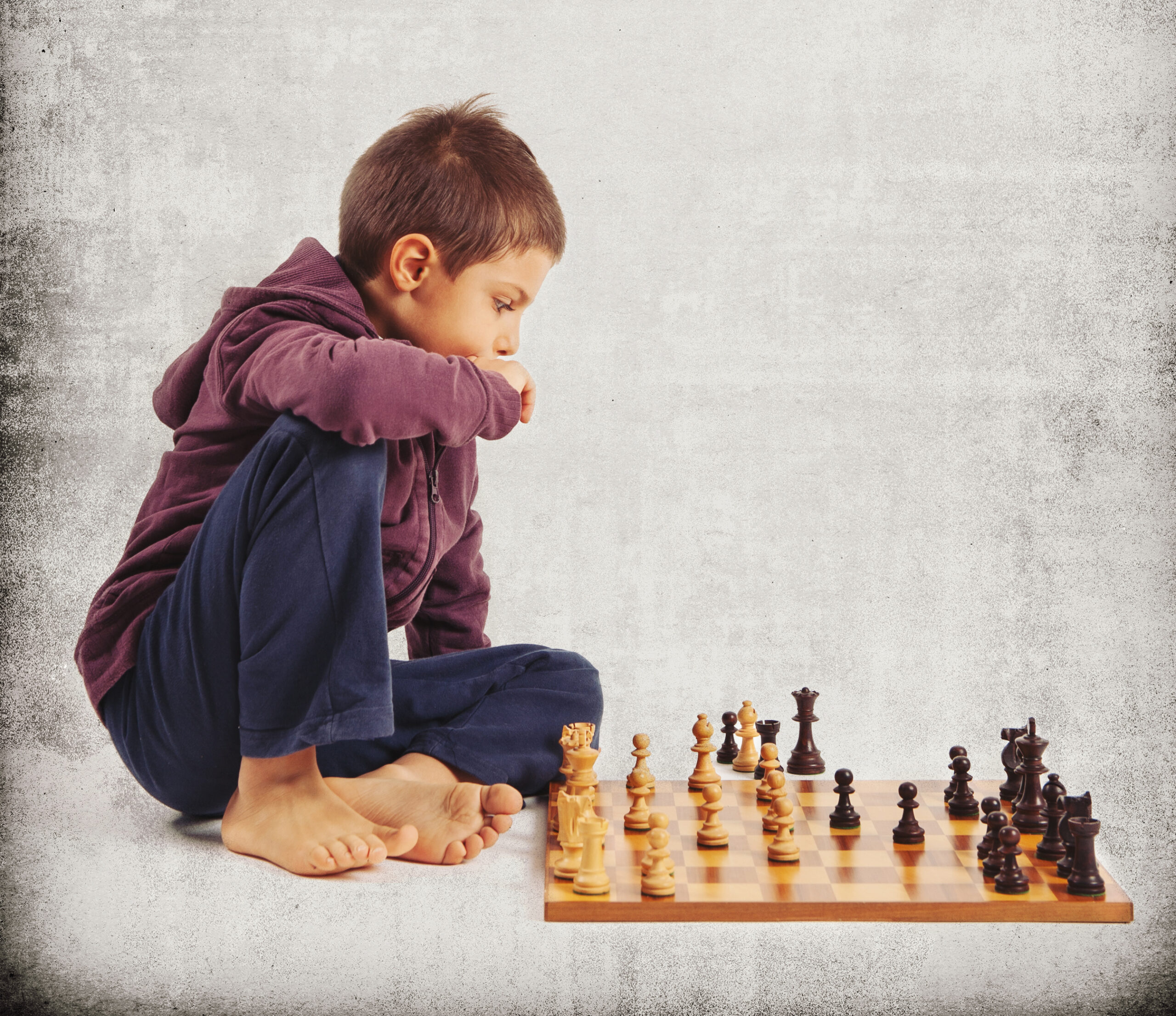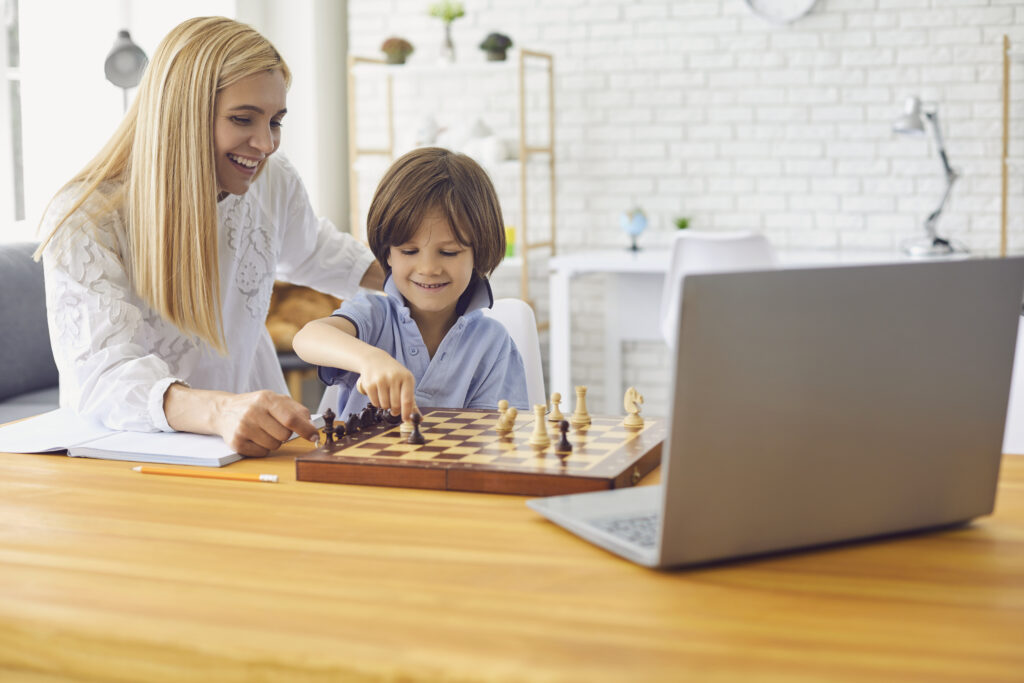Sportsmanship is about being fair and respectful when you play. It means treating your teammates and opponents nicely and always doing the right thing. It’s an important quality that makes life more enjoyable for everyone.
Have you ever thought about how chess can teach us about sportsmanship? Playing chess can help us become more sportsmanlike and improve how we treat each other. This is really important because learning sportsmanship isn’t just about having good manners; it’s a valuable life skill, especially for young people who are still growing and learning.
How is sportsmanship a major part of good behavior?
Chess is a game that can boost important life skills, including sportsmanship. Numerous parents have shared that their children’s self-esteem has improved through chess, while others have noted that it has taught their kids valuable lessons in sportsmanship, including how to gracefully handle challenges.
Chess imparts etiquettes to children seamlessly, often without them even realizing they’re learning. When they participate in live chess classes, they naturally develop routines that have a positive impact on various aspects of their lives.
Exhibiting good sportsmanship reflects a strong sense of self and demonstrates good character. Have you ever observed children becoming irritable and holding onto grudges against those they lose to in a game?
It’s fascinating how children can sometimes let their emotions take over when they lose a game, leading to changes in their perspective and behavior toward their opponents. They may inadvertently channel feelings of anger, hatred, or jealousy because they’re driven by the desire to win, seeing the chessboard as a battlefield. However, it’s crucial to emphasize that in chess, the “battle” is confined to the board itself, not the players. This valuable lesson needs to be imparted to children.
Indeed, good conduct at the chessboard translates into good behavior in general life. Online chess classes offer a unique opportunity for chess trainers to teach children important life skills. They can instill the principles of effective communication, polite conversation initiation, and respect for opponents, which can be challenging to achieve when playing with friends in informal settings. By doing so, children not only enhance their chess skills but also develop valuable social and behavioral skills that extend beyond the chessboard.
How can you promote sportsmanship and appropriate conduct during chess games?
You can take specific steps to nurture your child’s good behavior at the chessboard.
Practice politeness and begin positively: Begin your game by greeting your opponent warmly with a handshake. You can say, “Hello, I’m…” or “Nice to meet you, my name is…” or something similar. Maintain eye contact when speaking to your opponent.
Avoid bragging or attempting to intimidate your opponent: Some players may boast about their ratings, make comments about their opponents’ ratings, or engage in psychological tactics (“I played someone with a rating like yours last month and crushed them.”). Refrain from saying anything that could offend your opponent. Additionally, be mindful of your expressions, body language, and gestures to avoid causing offense.
Avoid arguing with your opponent: If your opponent makes a mistake and doesn’t fix it when you point it out, or if you both disagree about a move, seek help from a tournament director or the person in charge to decide what should happen. Dealing with conflicts in this manner increases the likelihood of resolving the dispute calmly and without unnecessary emotional stress.
Refrain from talking about your ongoing game with anyone: Even after the game is finished, discussing or analyzing it can be distracting to other players. Please find a quiet spot outside the playing area for such conversations.
Don’t rush your opponent by saying things like “hurry up!” or “move!” as it can make them feel pressured and might affect their game negatively. Instead, be patient and avoid causing unnecessary stress.
Show good sportsmanship whether you win or lose: Always thank your opponent for the game with a handshake. If you win, avoid celebrating excessively or putting down your opponent. If you lose, use it as a chance to learn and think about what you could have done differently. After the game, review your moves with your coach – it’s more productive than getting upset. Remember, you often learn more from a loss, so in the end, you still win by improving your skills and knowledge.
How to handle winning and losing well, do you think these things should also be taught?
Winning can serve as motivation to push one’s boundaries, while losses offer valuable lessons. In childhood, it’s common for kids to feel offended or upset after losing, which is a natural reaction. It takes time to help them manage these emotions. How can we guide children to become less affected by losing?
As parents, one of the most significant shifts we can make is redefining success for our children, moving away from our own childhood and early adulthood definitions. Through our life and work experiences, we’ve come to understand that success isn’t solely measured by victories, promotions, or top grades. Nowadays, enrolling our kids in live online chess classes, where we can keep a close watch on their progress from the comfort of our home, provides a convenient way to impart these valuable lessons.
Often, success boils down to simply showing up day after day and giving it another try. Consistency is the key to achieving your goals.
I’m aware that as they grow older, the challenges will increase. With sports competitions, team selections, and academic pressures, resisting the urge to focus solely on wins and losses can be tough. However, by emphasizing the importance of the process, effort, and attitude above all else, we can help them develop a sense of self-confidence and self-worth that isn’t dependent on society’s conventional measures of success.
Indeed, children have a remarkable capacity to absorb and retain what they are taught, and these lessons can shape their lives in profound ways. This is one of the reasons why chess, with its valuable life lessons and skills, can have a lasting impact in the long run.
Absolutely, online chess classes provide a convenient way for kids to learn and connect with others from around the world, all from the comfort of their homes. Chess stands out as a unique game that not only enhances various skills but also contributes to the development of better individuals with improved attributes.



